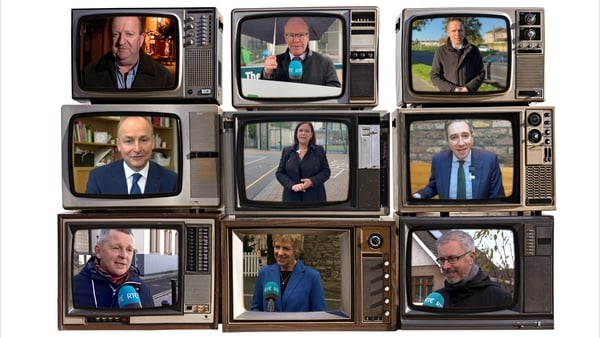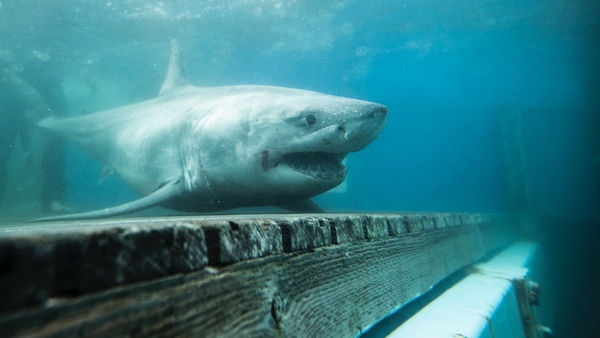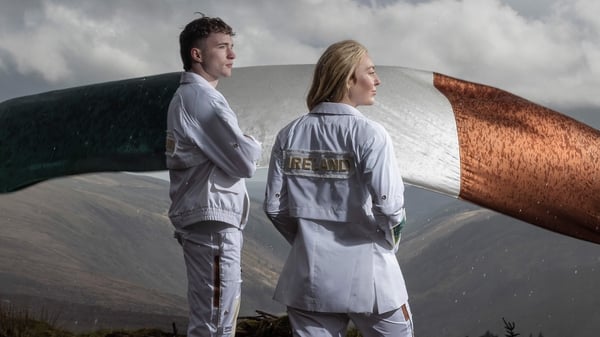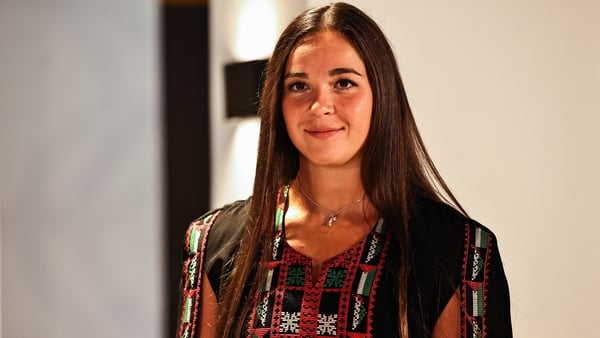
One year on from Russia's invasion of Ukraine, a small group of people are maintaining a daily protest outside the Russian embassy in Dublin.
On the frontline, the mood is friendly and good-humoured.
Chocolates are being shared and a flask of coffee provides some warmth from the wind.
It's only when a black car approaches, that a battle-cry, of sorts, rings out.
"Shame! Shame on you," shouts a chorus of voices, as the vehicle passes a barrier and disappears behind the automated gates of the Russian embassy in Dublin.
The small group of protesters resume their positions on the opposite pavement.
Some of them hold placards carrying anti-war messages or calls to expel the Russian ambassador. Several Ukrainian flags are flapping in the breeze.
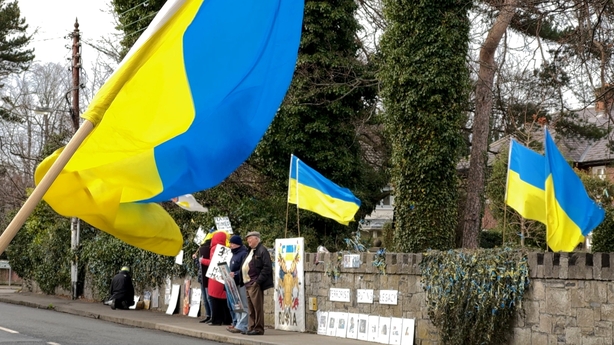
"I started to come as soon as the war broke out. It was my way of making my opposition known," explains Christy Lynch.
Like many of the protesters, Christy has continued to come to the embassy several times a week.
"It's the whole thing of having a visual presence. We hang up our flags. Cars pass by, up and down the road. By having the flags and banners up, people are reminded of the war," he says.
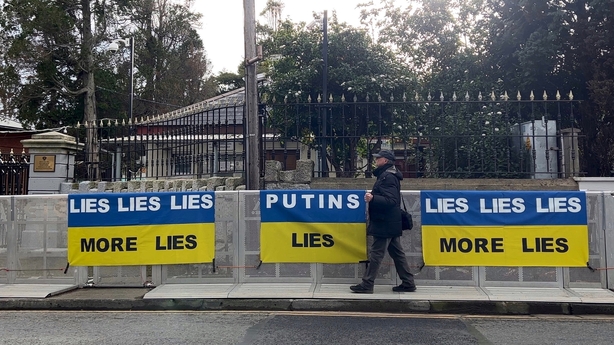
It is hard to miss the small group that assembles every day on the two kilometre stretch of road between Rathgar and Churchtown, although several posters on lamposts now urge drivers to wave in support, instead of honking their horns.
"I used to come seven days a week, but now I do four or five," says Helen Dwyer. "We believe it's important to be here. We have a right to protest. Even over Christmas, we always had someone here each day. We didn't give up."
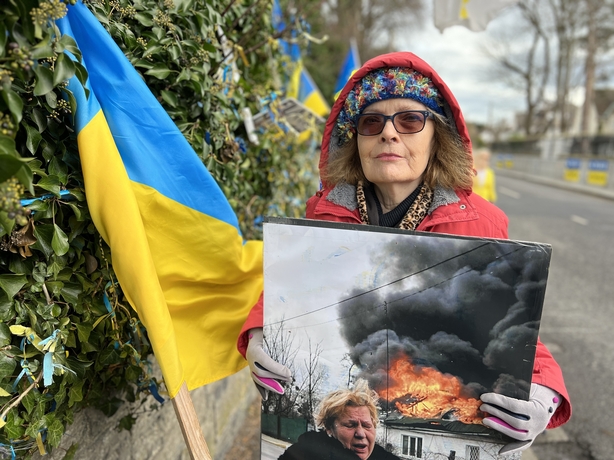
The protesters say they enjoy chatting to the gardaí who have been protecting the embassy since the beginning of the war.
They believe their dedication to maintaining a presence outside the building may be unique in Europe.
"I don't know of any other similar, continuous protest anywhere in Europe," says Helen Fanning. "But unfortunately, it will continue as long as the war does."
While the protest is set to continue, one of the early features of it has come to an end.
"One of the women used to hang blue and yellow ribbons on the bushes here. Each one signifying the loss of a child's life in the war. She did it until she just couldn't keep up with the numbers," explains Eibhlín Counihan, against a backdrop of hundreds of ribbons attached to branches.
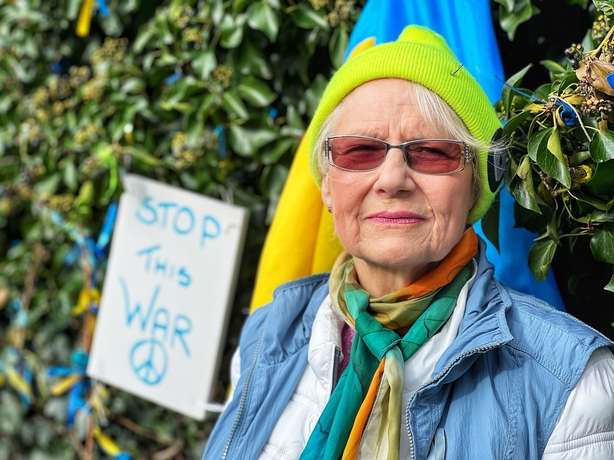
Recently, the protesters have turned their attentions to new ways of illustrating the strength of their feelings against Russia's invasion of Ukraine.
An anthology of 'poetry, prose and protest' will be published by Mercier Press in April, with all royalties from sales going to not-for-profit organisation Ukrainian Action.
"The title is 'We Stand With Ukraine' and that's physically what we have been doing," John Farrelly tells me.
"Thirty-four of us have contributed to it. In one of the pieces, one of the contributors describes how none of us know where this war is going to go. But he writes that 'we have a fierce determination to stick it out'. And that's what we will do, here outside the Russian embassy."

